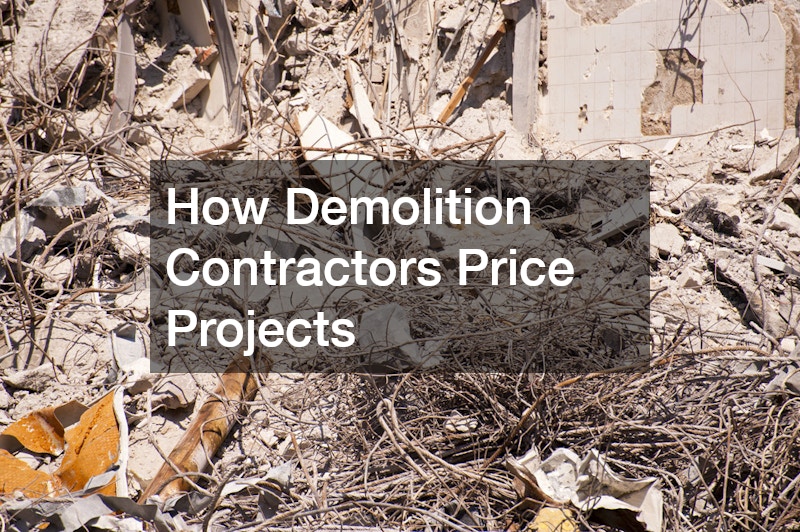Demolition is a vital part of many construction projects, whether it’s clearing a site for new construction, remodeling, or restoring a property. However, one of the key aspects of any demolition job is understanding how demolition contractors price their services. Pricing can vary significantly based on several factors, and knowing what influences the cost can help property owners and project managers plan better and avoid unexpected expenses.
In this article, we will explore the primary factors that demolition contractors consider when pricing a project.
One of the most significant factors that demolition contractors take into account when pricing a project is the size and complexity of the structure to be demolished. Larger buildings or structures that are more complex to demolish, such as multi-story buildings, will generally cost more to demolish than smaller, single-story homes or sheds. The type of materials used in the building can also affect pricing. For example, concrete and steel structures are generally harder to demolish than wood-frame buildings, requiring more specialized equipment and longer work hours. The scope of the demolition—whether it involves just tearing down the structure or also clearing the site of debris—will also impact the overall price.
Another important consideration is the location of the demolition site. Demolition contractors typically charge higher rates for projects in urban or densely populated areas due to the increased logistical challenges. Working in areas with limited access, where machinery and equipment have to be brought in and maneuvered carefully, may require additional time and effort. Additionally, if the project is located near sensitive areas, such as residential neighborhoods, schools, or businesses, contractors may need to follow specific regulations and safety procedures, which can add to the cost. Permits, which are often required for demolition, may also be more expensive or complicated to obtain in urban settings.
The level of environmental impact and the need for proper waste disposal is another crucial factor when demolition contractors price their projects. In some cases, contractors may be required to sort and dispose of materials in an environmentally responsible manner. For example, asbestos, lead paint, and other hazardous materials must be handled according to strict safety regulations. Special equipment may be needed to safely remove these materials, and the cost of disposal can be significant. If a building contains recyclable materials such as metal, wood, or glass, contractors may factor in the cost of recycling those materials, which can either increase or decrease the overall cost depending on the materials involved.
Labor costs play a significant role in the overall pricing of a demolition project. Demolition contractors need to account for the cost of skilled laborers, including demolition workers, equipment operators, safety officers, and project managers. The more labor-intensive the project, the higher the labor costs will be. Additionally, the location and the complexity of the demolition may require specialized crews, which can further increase labor costs. Demolition work is often hazardous, so the contractor may also need to include costs for safety measures, protective equipment, and compliance with local health and safety regulations.
The time frame for completing a demolition project is another crucial factor. Tight deadlines or rush jobs typically result in higher costs. Contractors may need to bring in additional labor or work extended hours to meet a specific deadline, which can increase the overall cost of the project. For smaller projects, demolition contractors may charge an hourly rate, while for larger projects, they may offer a flat fee based on the estimated time required. The longer the demolition project takes, the more expensive it will be, so it’s essential for property owners and project managers to clearly define timelines to ensure that all parties are on the same page regarding scheduling and costs.
In conclusion, the pricing of a demolition project involves multiple factors that vary depending on the specifics of the job. Demolition contractors consider the size and complexity of the structure, location, environmental impact, demolition method, labor costs, project time frame, and site preparation when pricing their services. Understanding these factors can help property owners and project managers anticipate costs and make informed decisions. By discussing these elements with a qualified demolition contractor, you can ensure that the project is completed within budget and meets all safety and regulatory requirements.
.



